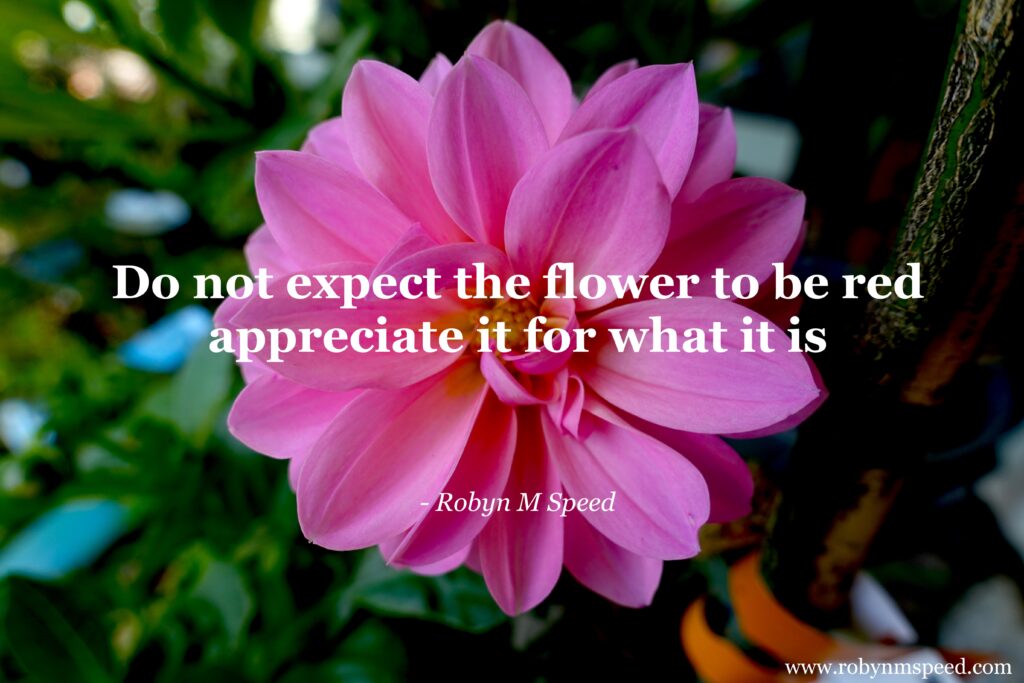The problem with having expectations, is that so often the other person has no idea of our expectations. We get upset because they do not react, respond, in a way we expect them to, in a way that we deem is appropriate. But … the fault, in truth, lies with us having had the expectation.

You will tell me, but being polite and grateful is just good manners. And I will tell you, your expectation of that from all people is the source of your upset.
Imagine this …. I was telling you a story, and I could tell by the look on your face that you did not want to listen to it. I felt bad. I felt like I should not have said anything. I felt upset that I had annoyed you. But if I look back … I had an expectation that you would be interested in what I had to say, and the fact that you were not is irrelevant. I had an expectation. I also felt bad because you were annoyed at me, and I did not mean for that to happen. I had an expectation of myself that I would entertain you and it would be an enjoyable conversation, but the conversation was only of interest to me and not to you. So my expectation of you being interested in a conversation that I was interested in … well it is that expectation that led to me feeling bad. You were annoyed at me because you had an expectation of me, an expectation that I would stop telling such stories, so you were annoyed because of your own expectations. Not all conversations are interesting to both parties, and sometimes navigating what we think will be of interest can be hard, but do you see my point? That the expectations are what led to the disappointments.
I am interested in things, and so are you, and our interests differ. I might be wildly excited about the idea of getting a single speed, drop bar, steel frame bicycle. You might not have the slightest interest. That won’t stop me raving on, most likely. When we are fascinated with something or passionate about it, we forget that other people don’t always feel the same. They have their own things going on, and so sometimes they just want a coffee and some quiet support.
Then again, if you do want some coffee and quiet support, tell me. If I do not know, you cannot be upset with me for not meeting your expectations. Tell me what you need so that I know.
My dog drops the ball at my feet. He wants me to throw it. I know that. I know his expectation, so I understand his disappointment if I do not throw the ball. In truth, I try to always make the time to throw the ball, because he has made his desire clear, his expectation clear, and there is no confusion about it! And I love to play ball with him anyway!
Sometimes I do not meet my own expectations, and the reason for that is very simple. I set the bar way too high. I expect myself to be perfect, to get it right every time, to entertain and never disappoint. And yes, there are many times when I am disappointed in myself. On those time I will sit down with a mug of hot tea, or a nice coffee, and I will accept that I don’t always get it right, and that is okay. I can see where I erred, where I knew of another’s expectations and yet I still pushed forth with what I wanted to talk about, knowing they would be annoyed and bored, and they were, and I knew, deep down, that they would be. It is all a learning journey, and a feeling journey as well, as I assess the conversations and see where there are openings and closings.
When we expect a person to be grateful, we should not. We should do things, and offer things, only because we desire to, and not for the payment of gratitude.
When people talk about unconditional love, and unconditional giving, they are talking of loving and giving with no expectations. If you have any expectation at all, even if it is just the expectation of a smile, then your giving is conditional, and you are expecting payment.
Love for the joy of loving. Give for the joy of giving.
